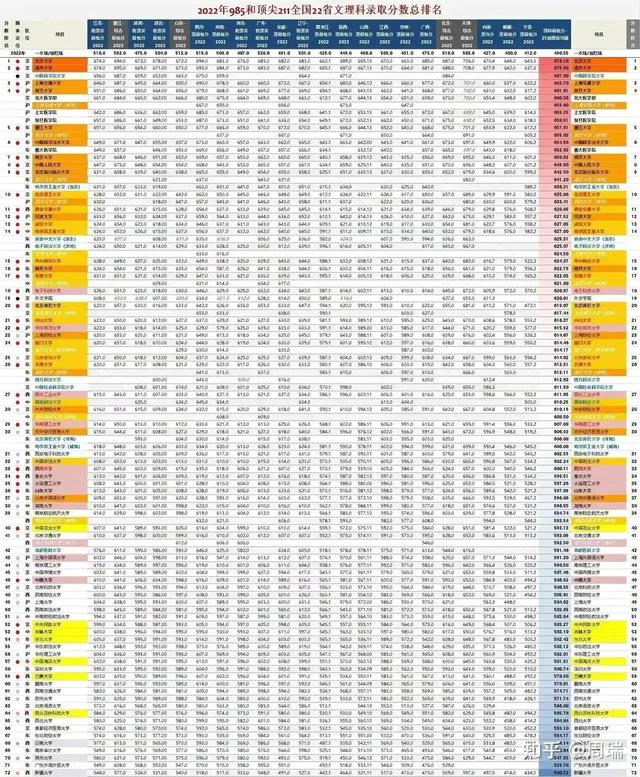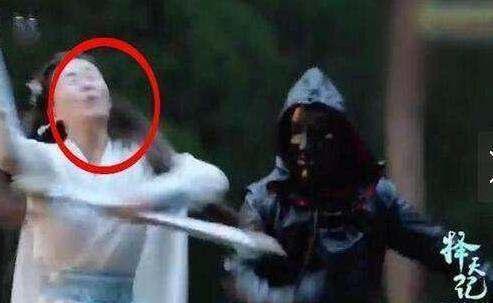译林版初中英语九年级上册Units1-8各单元语法要点归纳整理,下面我们就来说一说关于译林九年级上册英语第四单元语法?我们一起去了解并探讨一下这个问题吧!
译林九年级上册英语第四单元语法
译林版初中英语九年级上册Units1-8各单元语法要点归纳整理
九上Unit1 Know yourself 语法归纳整理
1. and, but, or和so
and, but, or 和so 都是连词,可以连接两个词语或句子。
★连词and 表示“和,并,而且”,可以用来连接两个结构对等的词语或句子,也可以起到承上启下的作用,所连接的词语或句子之间是并列关系。例如:
Millie is tall and slim.
Sandy turned off the lights and closed the door.
【注意】在否定句中,通常用or 连接两个结构对等的成分,而不用and。例如:
Simon cannot play basketball or football.
★连词but 表示“但是,而,可是”,所连接的词语或句子之间是转折关系。例如:
It is sunny but windy today.
I went to see my grandfather but he was not at home.
★连词or 表示“或者”,连接的词语或句子之间是选择关系。但是,在否定句中,or 表示的是并列关系,而不是选择关系。例如:
Will you go shopping this afternoon or after supper?
You can ask your teacher or search on the Internet.
You cannot help her or ask others to help her.
★连词so 表示“所以”,连接的词语或句子之间是因果关系。例如:
I got up late this morning, so I was late for school.
Daniel is busy doing his homework, so he can’t go out to play football with me.
【注意】so 和because 不能同时在一个句子中使用。例如:
错误的表达:Because he was ill, so he couldn’t come.
正确的表达:Because he was ill, he couldn’t come.
He was ill, so he couldn’t come.
2. both ... and ..., not only ... but (also) ..., either ... or ... 和neither ... nor ...
both ... and ..., not only ... but (also) ..., either ... or ...和neither ... nor ...都是连词,可以连接两个并列的成分,如主语、谓语、宾语、状语等。
★both ... and ... 意为“…… 和…… 都……”。如果both ... and ...连接的两个成分作主语,谓语动词通常用复数形式。例如:
Both Millie and Simon are middle school students.
Both Sun Qiang and Li Dong come from Jiangsu.
★not only ... but (also) ... 意为“不但…… 而且……”,其中also 可以省略。如果not only ... but (also) ...连接的两个成分作主语,谓语动词通常与but (also)后面的主语在人称和数上保持一致,即遵循所谓的“就近原则”。例如:
Not only Daniel but (also) Simon is good at Maths.
Not only Li Hui but (also) his brothers play football well.
★either ... or ...意为“不是……就是……;或者 ……或者……”。如果either ... or ...连接的两个成分作主语,谓语动词通常与or 后面的主语在人称和数上保持一致,也应遵循“就近原则”。例如:
Miss Wu may be either in the classroom or in the library now.
Either you or he has known the news.
★neither ... nor ...意为“既不……也不……”。如果neither ... nor ...连接的两个成分作主语,谓语动词通常与nor 后面的主语在人称和数上保持一致,也应遵循“就近原则”。例如:
NeitherWang Gang nor we believe there are UFOs.
Neither Amy nor her parents like swimming.
九上Unit2 Colours 语法归纳整理
宾语从句(一)
宾语从句是一种名词性从句,根据引导宾语从句的连词的不同,宾语从句可分为三类。本期我们学习由that、if或whether引导的宾语从句。
1. that引导的宾语从句
that 引导的宾语从句通常是一个表示陈述语气的句子,that 在句子中没有任何意思,因此在非正式语体中,that可以省略。
★that 引导的宾语从句可以接在某些及物动词之后。例如:
She doesn’t know (that) she is seriously ill.
I believe (that) I can get good grades in the coming English exam.
★that 引导的宾语从句也可以接在某些形容词之后。例如:
I am sure (that) he will succeed in the following term.
I’m certain (that) Millie will be the leader of the Reading Club.
2. if或whether引导的宾语从句
if / whether 引导的宾语从句通常是一个表示陈述语气的句子,而且if / whether 引导的宾语从句的语序为陈述句语序,常用于直接引语变间接引语。if /whether 在句子中有具体的意思,意为“是否”,因此不可以省略。例如:
I have no idea if / whether LiuWei can help me.
Are you sure if / whether Amy had won the first place in the English competition?
Millie asked me, “Can I go to your birthday party?”
→Millie asked me if / whether she could come to my birthday party.
I ask Daniel, “ Does Simon live in this community?”
→I ask Daniel if / whether Simon lives in that community.
九上Unit3 Teenage problems 语法归纳整理
1. 宾语从句(二)
在前面我们学习了由that、if 或whether 引导的宾语从句,本期我们学习由“wh-word”引导的宾语从句。
wh-word引导的宾语从句通常是一个表示特殊疑问语气的句子,而且wh-word引导的宾语从句的语序为陈述句语序。wh-word在句子中有具体的意思,因此不可以省略。例如:
①“Why does your father go to work on foot every day?” Millie asks me.
→Millie asks me why my father goes to work on foot every day.
②“What will you do in the future?” Simon asks me.
→Simon asks me what I will do in the future.
③Amy wonders, “Whom can I trust?”
→Amy wonders whom she can trust.
④My brother asked me, “Where did you buy this book?”
→My brother asked me where I had bought that book.
⑤“How can I improve my writing skills?” Li Mei wonders.
→Li Mei wonders how she can improve her writing skills.
⑥“Which sweater do you like best?” the shopkeeper asked me.
→The shopkeeper asked me which sweater I liked best.
【注意】当who 在宾语从句中作主语时,宾语从句的语序与原特殊疑问句的语序相同。例如:
“Who is your best friend in your class?” my father asks me.
→My father asks me who is my best friend in my class.
2. 表示提建议的表达
在英语中,表示提建议的表达有很多,常见的有Why not ...、Why don’t you ...、What / How about ...、Let’s ...、Shall we ...等。
★Why not ...和Why don’t you ...用于提建议时,其后接动词原形,常可互换使用。例如:
Why not go to the cinema with your parents?
=Why don’t you go to the cinema with your parents?
Why don’t you join the Music Club?
=Why not join the Music Club?
★What / How about后通常接v-ing形式。例如:
What / How about going fishing this Saturday?
★Let’s 后通常接动词原形。例如:
Let’s take a taxi to the museum.
★Shall we后通常接动词原形。例如:
Shall we buy some flowers for Miss Lu?
九上Unit4 Growing up 语法归纳整理
1. before, after, when和while
before和after既可用作介词,也可用作连词。作连词时,通常引导时间状语从句。before表示“在某个具体时间点之前”, after表示“在某个具体时间点之后”。 例如:
It is our last practice before the game (starts).
Simon went to play basketball after finishing / he finished his homework.
when和while都作连词,可引导时间状语从句。when表示“在某个具体时间”,while表示“在某段具体时间”。例如:
When the teacher came into the classroom, the students were talking about the show.
The telephone rang while the Greens were having supper.
2. since, till和until
since既可用作介词,也可用作连词。作连词时,通常引导时间状语从句。since表示 “从某个具体的时间开始(直到现在)”,主句通常用完成时态。例如:
I haven’t had anything since 10 o’ clock.
Miss Yan has worked in this school since she came to our city.
till和until既可用作介词,也可用作连词。作连词时,通常引导时间状语从句。当主句是肯定句时,until表示动作的终点,主句谓语动词通常用延续性动词,意为“直到……时候, 直到……为止”。例如:
I’ll wait for you here till / until lunchtime.
Simon played football in the playground till / until it began to rain.
当主句是否定句时,until表示动作的起点,主句谓语动词一般用短暂性动词,not ... until意为“直到……才”。例如:
Cindy didn’t realize she lost her purse until she wanted to pay for the bill.
3. as soon as和whenever
as soon as可以引导时间状语从句,意为“一……就……”,表示从句的动作发生在主句之前。 例如:
I will go to your office as soon as I finish writing the report.
Millie called me as soon as she arrived at the train station.
whenever可以引导时间状语从句,意为“无论何时”,表示从句的动作无论何时发生,主句动作随即发生。例如:
He asked about my health whenever he met me.
I can help you whenever you need.
九上Unit5 Art world 语法归纳整理
原因状语从句
原因状语从句是状语从句的一种。引导原因状语从句的连词主要有:because、since 和as,三者表示原因的程度不同。
1. because
★because引导的从句表示原因的程度比较强烈,强调产生主句情境的原因,并且该原因一般是未知的新信息。because引导的原因状语从句常位于主句之
后,但也可放在主句之前,并用逗号隔开。because引导的从句可以回答why提出的问题。例如:
I am tired because I didn’t sleep well last night.
Maria can’t come because she is ill.
Because I didn’t finish my homework, I was punished.
—Why is Serina crying?
—Because her father had an accident.
2. since / as
★since引导的原因状语从句表示的是已知的客观事实或通过分析得出的推论,一般位于主句之前。since在从句中意为“因为,既然”。通常since引导的原因状语从句的时态和主句保持一致。
★as引导的原因状语从句只是对主句的附带说明,整个句子的重点在主句;从句放在主句前后均可。as在句中意为“由于”。此外,since和as引导的原因状语从句都不能用来回答why提出的问题。例如:
Since you have homework to do, you’d better stay at home.
Since time is up, let’s have a break.
As no classmates were there, I got back soon.
I went shopping alone as Mike was busy with his work.
九上Unit6 TV programmes 语法归纳整理
1. if
if可以用来引导条件状语从句,此时,if通常表示“假如”。if引导的从句既可以放在主句之前也可以放在主句之后。当从句位于主句之前时,常用逗号与主句隔开。当一个句子中含有if引导的条件状语从句时,主、从句的时态有如下情形:
★如果从句表示将来要发生的事情,从句通常用一般现在时,主句用一般将来时,即遵循“主将从现”原则。例如:
If it doesn’t rain, I will go for a picnic.
★如果主句中含有will、may、can、might等情态动词时,从句通常用一般现在时。例如:
You can go if you want.
★如果表示的是客观事实或普遍真理,从句和主句通常都用一般现在时。例如:
If you heat ice, it melts.
★如果主句是祈使句,从句通常用一般现在时。例如:
Don’t play computer games if you don’t finish your homework.
2. unless
unless意为“除非,如果不”,可用来引导条件状语从句。unless引导的从句既可以放在主句之前也可以放在主句之后。当从句位于主句之前时,常用逗号与主句隔开。unless引导的从句可用if ... not ...改写且句意保持不变。此外,如果主句是一般将来时态,则unless引导的从句的时态通常用一般现在时表将来。例如:
Unless you know the way to the mountain, you’d better take a map.
=You’d better take a map unless you know the way to the mountain.
Unless you agree, I won’t read your diary.
=I won’t read your diary unless you agree.
I sleep with the window open unless it’s cold.
=I sleep with the window open if it is not cold.
I have to go there for myself unless you can take the place of me.
=I have to go there for myself if you can’t take the place of me.
九上Unit7 Films 语法归纳整理
1. although和though
★although较正式,语气强;though较常用,两者可互换使用。例如:
Though he was tired, he went on working.
=Although he was tired, he went on working.
★although和though引导的从句放在主句前后均可。例如:
He often helps me with my English although / though he is quite busy.
Although many difficulties are still ahead, we decide to make greater achievements.
★although或though引导的从句不能与but或however连用,但可与yet或still连用。例如:
Though he was old, but he worked hard. (×)
Though he was old, he worked hard. (√)
He was old, but he worked hard. (√)
★though引导的从句,可用倒装语序,即把从句中的表语或状语放到though之前;although 却不能这样用。例如:
Young though she is, yet she is fit for the job.
【注意】
★though还可与别的词结合使用,如even though、as though 等;although则无这种搭配功能。例如:
I’ll go and help them even though I stop my work.
★though还可作并列连词,相当于and yet(然而,可是),它引导的分句常对另一分句起补充说明作用;although则无这种用法。例如:
I wouldn’t like to go to the evening, though they will invite me to.
2. so ... that和such ... that
★在so ... that ...句型中,so后通常接形容词或副词,that后接从句,表示结果。
☆常用句型:主语 谓语 so adj. / adv. that从句。例如:
My brother is so young that he can’t look after himself.
The singer sang so nicely that the audience clapped with excitement.
☆so 形容词 a(n) 单数名词 that 从句。例如:
She made so good a meal that we all ate far too much.
It was so fine a day yesterday that we all went out for a picnic.
☆so many / much / few / little 名词 that从句。
当名词前有表示数量多少的many、much、few、little等词修饰时,通常用so ... that句型。例如:
There are so many people on the bus that I can’t find a seat.
The piano costs so much money that Linda can’t afford it.
★在such ... that ...句型中,such后通常接名词(短语),名词前可有形容词修饰,当名词是可数名词单数形式时,其前可有不定冠词,that后接从句,表示结果。
☆such a(n) 形容词 单数名词 that从句。例如:
Tom held such a meaningful activity that we all supported him.
☆such 形容词 复数名词 that从句。例如:
They are such good students that the teacher likes them.
☆such 形容词 不可数名词 that从句。例如:
It was such bad weather that they couldn’t go camping.
☆one (no, any, all, many, some, several等) such 可数名词 that从句。例如:
There are many such good books that I can’t decide which one to choose.
【拓展】
★so ... that ...和such ... that ...可以相互转换。例如:
She is so honest that everybody trusts her.
→She is such an honest girl that everybody trusts her.
→She is so honest a girl that everybody trusts her.
★当主句和从句的主语一致,且that从句是肯定句时,可用enough to do sth.来转换。例如:
The man is so strong that he can lift the heavy box.
→The man is strong enough to lift the heavy box.
★当主句和从句的主语不一致,且that从句是肯定句时,可以用enough for sb. to do sth.来替换,但须注意不定式的宾语要省略。例如:
The question is so easy that I can work it out.
→The question is easy enough for me to work out.
★当主句和从句的主语一致,且that从句是否定句时,可以用too ... to ...来替换。例如:
The girl is so young that she can’t dress herself.
→The girl is too young to dress herself.
★当主句和从句的主语不一致,且that从句是否定句时,如果要用too ... to ...替换so ... that ...,则用介词for 引出动词不定式的逻辑主语,可以用too ... for sb. to do sth.来替换,注意不定式的宾语要省略。例如:
The bag is so heavy that she can’t move it.
→The bag is too heavy for her to move.
★可将so或such移至句首,再将主句的主、谓语倒装,以示强调。例如:
It is so hot that we don’t want to go out.
→So hot is it that we don’t want to go out.
He made such an excellent speech that everyone admired him.
→Such an excellent speech did he make that everyone admired him.
★so many / much ... that ... 可转换为such a lot of ... that ...。例如:
There are so many people in the room that we could not get in.
→There are such a lot of people in the room that we could not get in.
★so few / little ... that ...可转换为such a few / a little ... that ...。例如:
So few people came that the meeting had to be put off.
→Such a few people came that the meeting had to be put off.
3. so that
so that意为“以便,为了”,so that引导的从句表示目的。so that常位于句中连接两个分句,从句中多用can、could、may等情态动词。例如:
I got up early so that I could get to the station in time.
I’ll tell you all the facts so that you can judge for yourself.
Li Wei runs fast so that he may catch up with the bus.
Amy practises singing every day so that she can win in the singing competition next month.
【拓展】
英语里可以用to、in order to、so as to或so that、in order that来表示目的,它们之间都可以相互转换。区别是:
to、in order to、so as to引导的是目的状语短语,构成简单句;so that、in order that引导的是目的状语从句,构成复合句,并且从句中谓语动词常与can、could、may、might等情态动词连用。例如:
He got up early to / in order to / so as to catch the first bus.
Speak clearly so that everybody can understand you.
【注意】
so that和in order that的区别:
★so that引导的从句只能放在主句之后,而in order that引导的从句既可放在主句前也可放在主句后。例如:
The girl shouted at the old man so that he could hear her.
The girl shouted at the old man in order that he could hear her.
In order that the old man could hear her, the girl shouted at him.
★so that还可引导结果状语从句,意为“因此,结果”,但in order that不能。例如:
He was very humorous so that we liked him very much. (表结果)
九上Unit8 Detective stories 语法归纳整理
定语从句
在英语中,用来修饰名词的句子叫做定语从句,也叫做关系从句。被定语从句修饰的名词称为先行词。定语从句放在先行词的后面,由关系代词或关系副词引导。关系代词和关系副词放在先行词和定语从句之间,既起连接作用,同时又是定语从句的一个成分。本阶段我们要学习的是由关系代词that、which和who引导的定语从句。
★关系代词that在定语从句中既可指人,也可指物,在从句中作主语或宾语。作主语时,that不能省略;作宾语时,that可以省略。例如:
A plane is a machine that can fly.
The man (that) my father saw on the street is my teacher.
★关系代词which指物,不指人,在从句中作主语或宾语。作主语时,which不可省略;作宾语时,which可以省略。例如:
It’s a book which introduces how to cook.
The bike (which) Jim’s father bought yesterday is a present for Jim.
★关系代词who只可指人,在从句中作主语,口语中也可作宾语。作主语时,who不可省略;作宾语时,who可以省略。例如:
This is the man who found my handbag.
The girl (who) I met at the party yesterday is Jim’s sister.
【拓展】
★当指物的关系代词在介词后作介词的宾语时,只能用which,且不能省略;当介词不在关系代词前面时,可以用that或which,它们可以省略。例如:
This is the house in which my grandparents lived 30 years ago.
This is the house (that / which) my grandparents lived in 30 years ago.
★当先行词既有人又有物时,关系代词只能用that;当先行词是不定代词时,关系代词一般用that;当先行词被形容词最高级,序数词以及only等词修饰时,关系代词常用that。例如:
Mike took many photos of the buildings and the people that he was fond of.
That’s all that I can do for you.
She is the youngest writer that I have ever known.
Mount Tai is the first place that I want to visit.
Tony is the only student that made a speech at the opening of the sports meeting.











